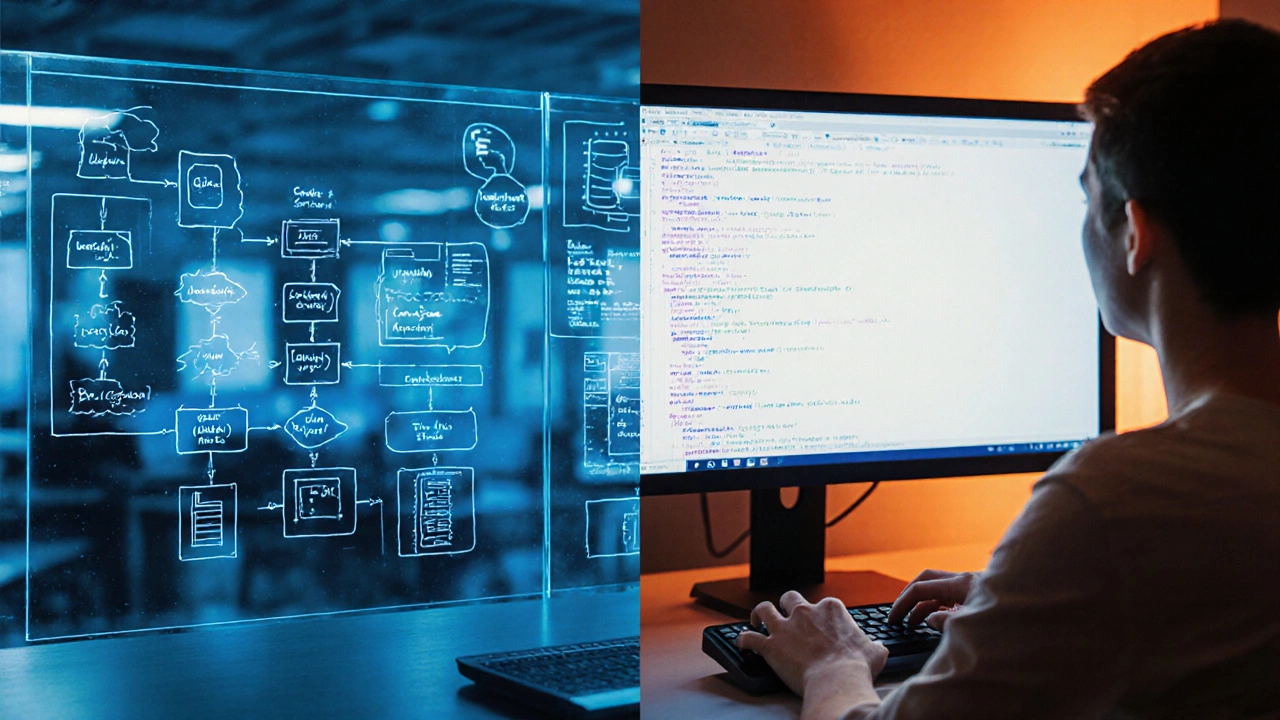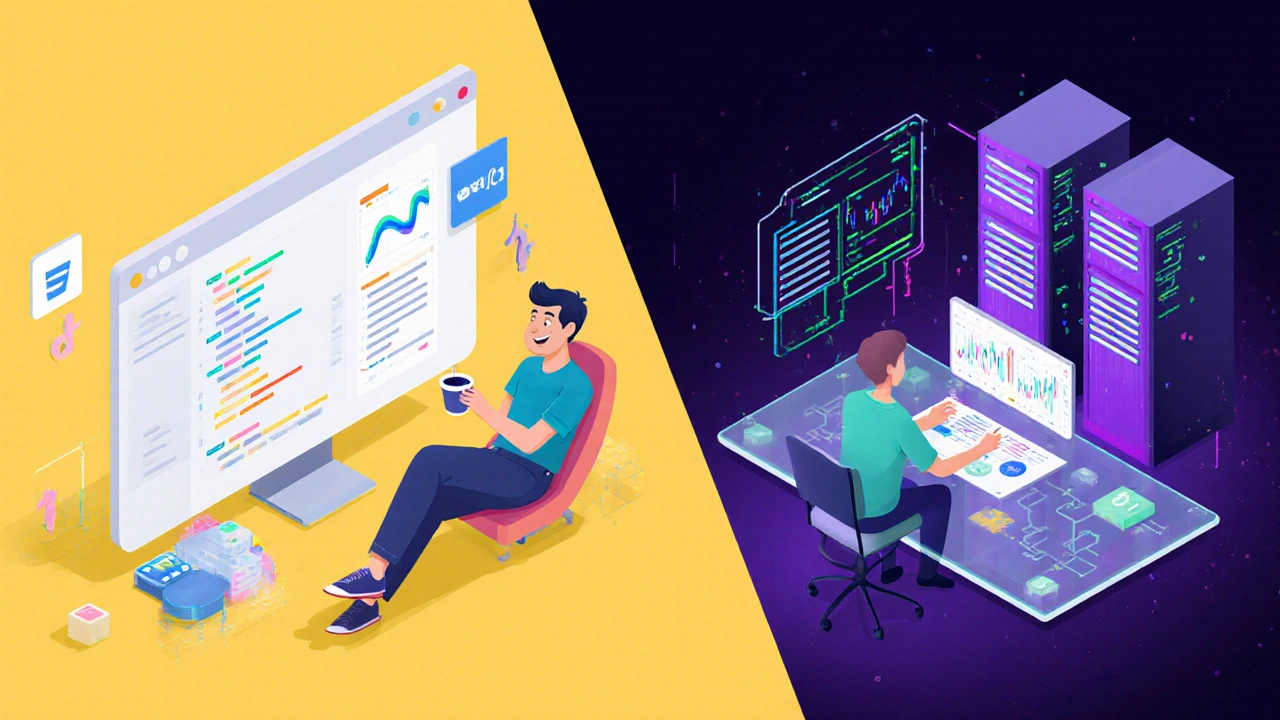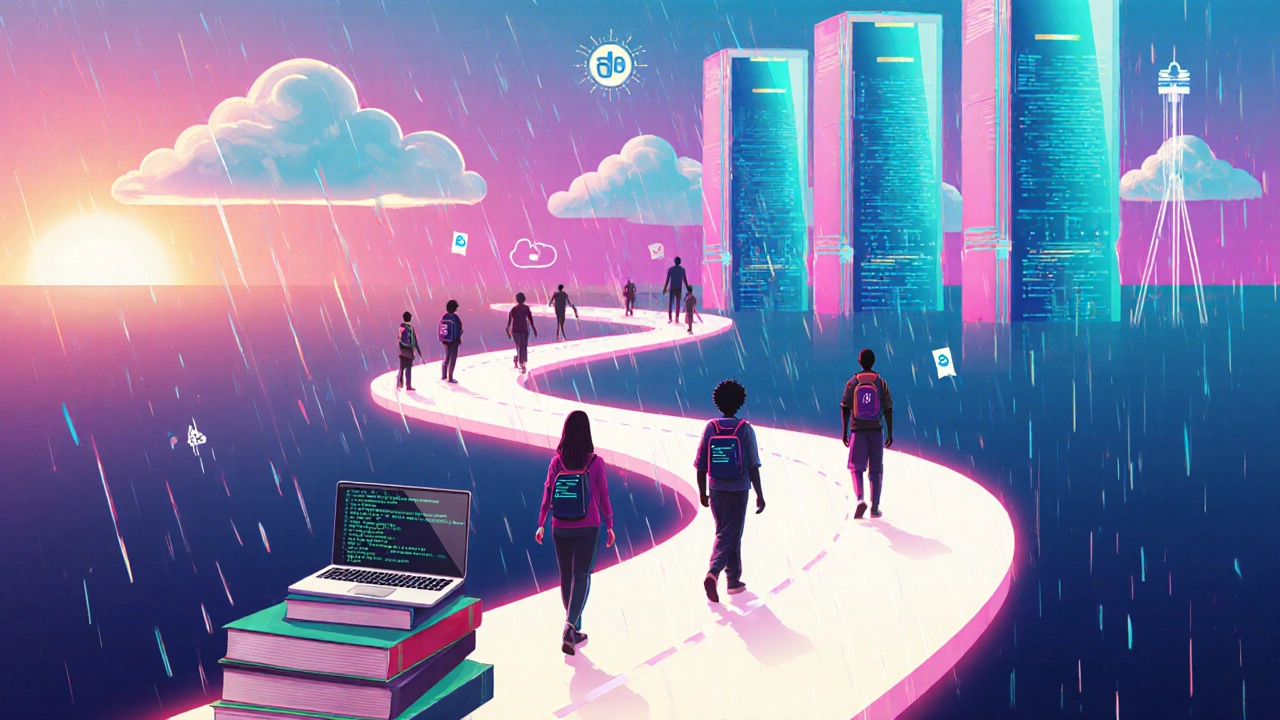
Programming vs Coding: Which Should You Learn First?
Learning Path Assessment: Programming vs Coding
Your Learning Journey Assessment
Answer these 4 questions to determine if you should focus more on coding fundamentals or transition into programming concepts.
Your Recommended Learning Path
Key Takeaways
- Programming is a broader discipline that includes problem‑solving, design, and architecture, while coding is the act of writing code.
- Start with coding to get hands‑on confidence, then expand into programming concepts for deeper mastery.
- Career paths differ: pure coders often enter entry‑level development roles; programmers can move toward system design, architecture, or data science.
- Learning resources should match your goals - interactive tutorials for coding, structured courses for programming.
- A balanced roadmap combines both: practice coding daily and study programming theory weekly.
When you Google “Is it better to learn programming or coding?” you’re probably wrestling with two terms that sound alike but point to different skill sets. The short answer? Both matter, but they serve distinct purposes on your learning journey.
Below we break down what each term really means, why the distinction matters for your career, and how to decide which one to tackle first.
What Exactly Is Programming?
Programming is the systematic process of designing, writing, testing, and maintaining software solutions. It goes beyond typing lines of code; it involves algorithmic thinking, data structures, software architecture, and project management. In practice, a programmer plans how a program will solve a problem, chooses the right language, writes reusable modules, and ensures the solution scales.
And What About Coding?
Coding is the act of translating a set of instructions or logic into a syntax that a computer understands. Think of it as the “hand‑on” part of software creation - you sit at a keyboard, type, and see immediate output.
Key Differences at a Glance
| Aspect | Programming | Coding |
|---|---|---|
| Scope | Full software lifecycle - design, development, testing, maintenance. | Writing source code to implement a defined logic. |
| Typical Tasks | Algorithm design, architecture planning, code review, performance optimization. | Syntax writing, debugging simple errors, implementing UI components. |
| Learning Curve | Steeper - requires abstract thinking, understanding of data structures, paradigms. | Gentler - start with basic syntax and immediate feedback. |
| Career Roles | Software Engineer, Systems Architect, Data Engineer, Researcher. | Junior Developer, Front‑end Engineer, Scripting Specialist. |
| Core Concepts | Algorithms, design patterns, OOP, functional programming, version control. | Variables, loops, conditionals, syntax rules of a language. |

Why the Distinction Matters for Your Career
Employers often list “programming fundamentals” as a requirement, yet they also expect candidates to be able to learn programming quickly on the job. If you only know how to code, you might land a junior role, but advancing to senior or lead positions will demand a broader programming mindset.
Consider two real‑world scenarios:
- Scenario A - Building a simple website: A coder can whip up HTML, CSS, and a bit of JavaScript in a day. The result works, but if traffic spikes, the site may crash because the underlying architecture wasn’t planned.
- Scenario B - Developing a financial trading platform: A programmer studies concurrency, latency, and data integrity before writing a single line of code. The final product can handle millions of transactions per second.
Both outcomes are valuable, but the latter requires the strategic thinking that programming cultivates.
Choosing Your Starting Point: Coding First, Then Programming
Most beginners find it easier to jump straight into coding. Platforms like freeCodeCamp, Codecademy, or the UK’s Code Club let you write code within minutes and see results instantly. This builds confidence and reinforces the habit of practice.
Once you’re comfortable with the basics, broaden your skill set with programming concepts. Enroll in a structured course (e.g., Coursera’s “Programming Foundations” or edX’s “Introduction to Computer Science”). Aim for a weekly cadence:
- Spend 3-4 days coding short exercises (e.g., solving a problem on LeetCode).
- Allocate 1-2 days to study theory - data structures, algorithms, software design.
- Apply the theory to a small project that combines both aspects.
Key Entities You’ll Encounter on the Path
Understanding the ecosystem helps you choose resources wisely. Below are the core entities you’ll run into, each with essential attributes.
- Software Development - the umbrella process that includes both programming and coding; typical tools: Git, IDEs, CI/CD pipelines.
- Computer Science - academic discipline underpinning programming; key topics: theory of computation, complexity, discrete math.
- Algorithm - step‑by‑step procedure solving a problem; examples: binary search (O(logn)), quicksort (O(nlogn)).
- Debugging - process of finding and fixing errors; common tools: breakpoints, log statements, profilers.
- Programming Language - formal language used to write code; popular choices in 2025: Python3.12, JavaScriptES2024, Rust1.73.
- Career Path - progression from junior coder to senior programmer, architect, or tech lead; salary bands (UK 2025): junior £35k‑£45k, senior £70k‑£90k.
Common Pitfalls and How to Avoid Them
Pitfall 1 - Treating coding as the end goal. Many learners stop after they can write a “Hello World”. To grow, set milestones that require algorithmic thinking.
Pitfall 2 - Skipping fundamentals. Jumping straight into frameworks (React, Django) without understanding core programming concepts leads to fragile code.
Pitfall 3 - Ignoring version control. Even a solo coder benefits from Git; it teaches disciplined workflow and makes collaboration possible.

Practical Roadmap (12‑Week Blueprint)
- Weeks 1‑2: Pick a language (Python recommended). Complete basic syntax tutorials - variables, loops, functions.
- Weeks 3‑4: Solve 20 beginner‑level problems on HackerRank. Focus on reading error messages and using a debugger.
- Weeks 5‑6: Study data structures (arrays, linked lists, dictionaries). Implement each from scratch.
- Weeks 7‑8: Learn a simple algorithm (binary search, sorting). Apply it to a mini‑project - e.g., a contact manager.
- Weeks 9‑10: Introduce software design basics - modularity, functions vs classes, simple design patterns.
- Weeks 11‑12: Build a full‑stack prototype (Flask or Node) that integrates everything you learned. Deploy on a free cloud service.
By the end of this plan you’ll have both solid coding chops and a programmer’s mindset.
Resources Worth Your Time
- Interactive Coding: freeCodeCamp, Codecademy, Scrimba - great for rapid feedback.
- Programming Theory: “CS50” (Harvard), “Algorithms” by Robert Sedgewick on Coursera.
- Community Support: Stack Overflow, Reddit r/learnprogramming, local UK meetups via Meetup.com.
When to Re‑evaluate Your Focus
If after six weeks you find yourself bored with routine syntax exercises, it’s a signal to dive deeper into programming concepts. Conversely, if theory feels overwhelming, return to coding drills to rebuild confidence.
Frequently Asked Questions
Is coding just a subset of programming?
Yes. Coding is the act of writing code, while programming includes coding plus planning, design, testing, and maintenance.
Can I become a software engineer by only learning to code?
You can land junior roles with strong coding skills, but advancing usually requires a solid grasp of programming concepts like algorithms and system design.
Which language should I start with: Python or JavaScript?
Python is often recommended for absolute beginners because of its simple syntax and readability. JavaScript is ideal if you’re keen on web development from day one.
How long does it take to transition from coder to programmer?
The timeline varies, but a focused 12‑week roadmap (as outlined above) can provide a solid foundation. Real mastery usually takes 6‑12 months of consistent practice and project work.
Do employers value coding certificates?
Certificates show commitment, but employers prioritize demonstrable projects and problem‑solving ability. Pair any certificate with a portfolio of real code.






Write a comment